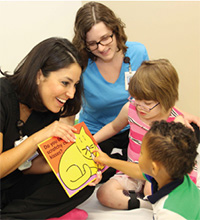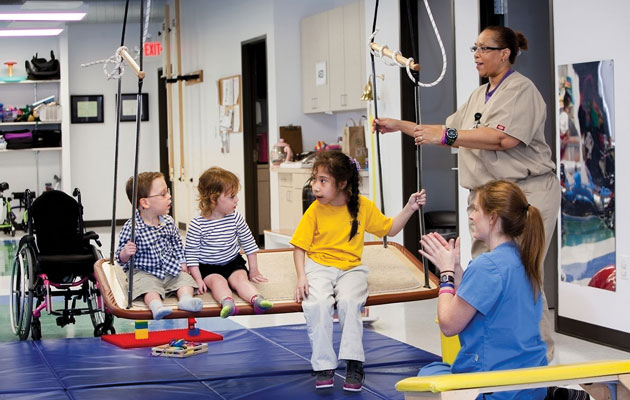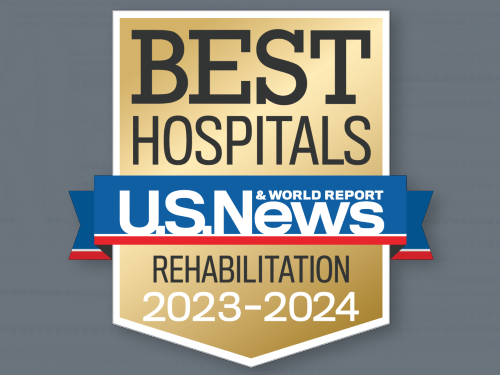
At TIRR Memorial Hermann, we focus on children and teenagers getting back to the life they love. The team of Sensory Processing Disorder specialists includes a neuropsychologist and physical, occupational and speech therapists who work together to reduce deficits from SPD and improve the quality of your child’s life. Our team works together with you to develop a plan to meet the child’s lifestyle, and educational and personal needs.
The ability to learn even the simplest things and to behave appropriately is impaired when a child can’t understand the input received from his or her senses, such as:
- Auditory - hearing
- Vision
- Olfactory - smell
- Tactile - touch, pain, light, temperature and pressure
- Gustatory - taste
- Vestibular - state of balance, gravity, movement and changes in space
- Proprioceptive - unconscious awareness of body parts in relation to movement of the muscles and joints about position, weight or pressure stretch, and changes in position in space
What Are the Symptoms of Sensory Processing Disorder?

- Fear related to sudden, high-pitched, or loud noises such as flushing toilets, vacuums, or clanking silverware
- Notice background noises that others don’t seem to hear
- Avoid school activities with too much noise
- Avoid hugs and cuddling even with familiar adults
- Act aggressively to unexpected touch
- Become irritated by clothing textures, labels, seams of socks
- Dislike swings and other playground equipment
- Fear falling even if there is no real danger
- Dislike having their feet off the ground
- Severely limit the types of food eaten by taste, smell, texture, or visual appearance
- Frequently touch people or things, even when it is inappropriate to do so
- Not understand or maintain personal space even when same-age peers can understand it
- Be clumsy and demonstrate uncoordinated movements
- Have a high tolerance for or indifference to pain
- Accidently break crayons and toys
- Unintentionally harm other children and/or pets when playing
- Fidget
- Seek movement in unsafe ways
Sensory Processing Disorder Treatment
- Cognitive therapy
- Balance and coordination training
- Sensory processing and modulation treatment strategies
- Core strengthening
- Strengthening and stabilization to improve tone
- Vestibular, tactile, proprioceptive and visual activities
- Family education
We Work With Your Child To:
- Improve psychosocial and cognitive functioning, including attention, interaction, and engagement for school and play
- Improve participation and enjoyment in daily activities
- Decrease anxiety
- Improve social interactions
- Improve general health
- Reduce hypersensitivities
- Improve coordination and mobility
- Improve bilateral integration and sequencing
Get Started
To make a referral or to schedule an appointment, please call 1 (800) 44-REHAB (73422), (713) 797-5942, fax (713) 797-5988 or fill out our online forms by clicking the buttons below.
Contact Us
If you have questions or are looking for more information, please complete the form below and we will contact you.
